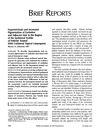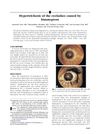Influence of Prostaglandin F2α and Its Analogues on Hair Regrowth and Follicular Melanogenesis in a Murine Model
April 2005
in “
Experimental dermatology
”
TLDR Prostaglandin F2alpha and related compounds can increase hair growth and darken hair in mice.
The study investigated the effects of prostaglandin F2α (PGF2α) and its analogues, latanoprost and isopropyl unoprostone, on hair regrowth and follicular melanogenesis in 7-week-old C57BL/6 mice. The results showed that all three compounds stimulated hair follicles and melanocytes, promoting the transition from the telogen to the anagen phase and enhancing hair growth. PGE2, another prostaglandin, exhibited moderate growth effects on early anagen hair follicles but did not significantly induce telogen-to-anagen conversion. Additionally, the study noted cases of hypertrichosis, trichomegaly, and poliosis, indicating potential side effects of PGF2α analogues used in eye treatments. The role of protein kinase C and mast cells in these processes was also discussed.





